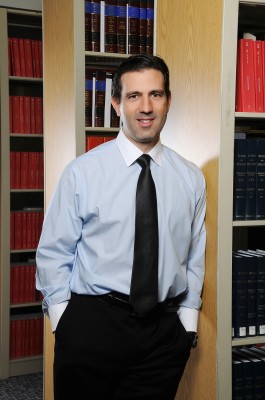Raising Standards for Deepwater Drilling
When news reports of a rig explosion in the Gulf of Mexico hit airwaves on April 20, 2010, an entire industry came to a halt. Even though it wasn’t Shell’s rig, the company felt the aftershocks just as every oil producer did, and had to make major changes in order to return to business.

“No one really knew whose rig that was when we woke up that morning,” Carlos Abello says of Deepwater Horizon, the infamous rig contracted to work for British Petroleum (BP). “It could have been anyone’s. Once we learned whose it was, it didn’t change the way we felt; we felt horrible for all involved. As events unfolded, it soon became clear that this would be a game-changing event for the entire industry.”
The US government put a moratorium on drilling in the area, threatening a significant impact on the future of the business. Shell had a 40-year legacy of drilling wells in the Gulf of Mexico, accounting for 55 percent of the company’s oil and gas production in the United States. Now, federal approval would be required for any drilling to return to the Gulf, but this condition spurred an important collaboration between Shell’s legal department and Washington. As federal regulations were coming out piecemeal, Abello and his colleagues provided formal comments. “It forced us to take a step back and explain in detail how Shell would continue to drill safely,” says Abello.
The ripple effects from the BP oil spill permanently changed the way Shell would approach activities in Alaska, Brazil, and the North Sea. “After about 11 months of engaging with local stakeholders, the Department of the Interior, and members of our industry,” says Abello, “we were the first company to get back to work. We’ve learned from it, and it’s made us a safer, stronger company.”
Putting Energy Behind LNG
With a natural gas renaissance occurring in America, there has never been greater demand for Shell’s liquefied natural gas (LNG) technology. For the last 50 years, Shell has been transporting chilled natural gas both in the United States and overseas. Condensing the fuel for transport, heating it upon arrival, and piping it to customers has allowed Shell to power even remote areas with this cleaner, cheaper alternative to petroleum. From the legal office, Abello is managing and developing initiatives to explore and deliver natural gas in new regions.
“The discovery of shale has led to increased national security, a spike in exports, and job creation growth,” says Abello. “Shell is involved in each part of the chain.” There are currently seven Shell LNG operations that are either active or under construction. Nigeria holds particular promise as the fastest-growing LNG project in the world and one of the largest LNG suppliers in the Atlantic market.
In the future, Abello says LNG has the potential to replace traditional fuels such as diesel. “A lot of our efforts now,” he says, “are focused on figuring out how to make natural gas commercially viable as a transportation fuel.” More and more companies are now using it to power their rigs onshore. With the economic and environmental benefits already in place, infrastructure and demand need only catch up with Shell’s capabilities.
Partnering to Keep the Arctic Pristine
For Shell, Alaskan oil and gas represents a potentially enormous resource. The company has been committed to developing the Arctic region since 2007. Now, many of the new standards that applied in the Gulf also apply to Alaska, making it more challenging to drill in a timely fashion.
“What makes Alaska unique from an operational perspective,” says Abello, “is the limited time frame to drill.” From July to September, when ice is scarce, extractors like Shell are challenged to mobilize an enormous fleet of up to 25 support vessels to a remote locale. It is a vastly different operation than in the Gulf where a permanent industry is nearby. Logistics, he says, are key. With increased nongovernmental organization (NGO) scrutiny and federal regulation, drilling has provided another opportunity for Abello and his team to collaborate to keep Shell operational in stringent conditions.
“We view the federal government as a critical stakeholder,” says Abello, who knows that one bad outcome in court can affect the entire industry. “In order for Shell to be successful, it needs governmental support, so we work collaboratively with Washington to figure out the best, safest ways to explore.”
Fueling Futures Through Community Outreach
On a global level, Shell’s 700 lawyers worldwide are a group that gives back. The pro bono team in America works on wills and general representation issues in their communities for people who may not be able to afford such services. And many participate in local school playground rebuilding and home painting. But on a personal level, Carlos Abello finds in Shell an unequivocal advocate for his dedication to the Hispanic youth in Houston.
Serving on the board of Spring Spirit, a Christian youth program designed to encourage safe pathways to opportunity through sports, Abello coaches a baseball team. “I’ll be at a meeting, and my colleagues will ask, ‘don’t you have a game to get to?’” says Abello of his peers, who know his coaching schedule. “Even some of my clients will come and watch the games. That type of culture makes Shell unique.”

